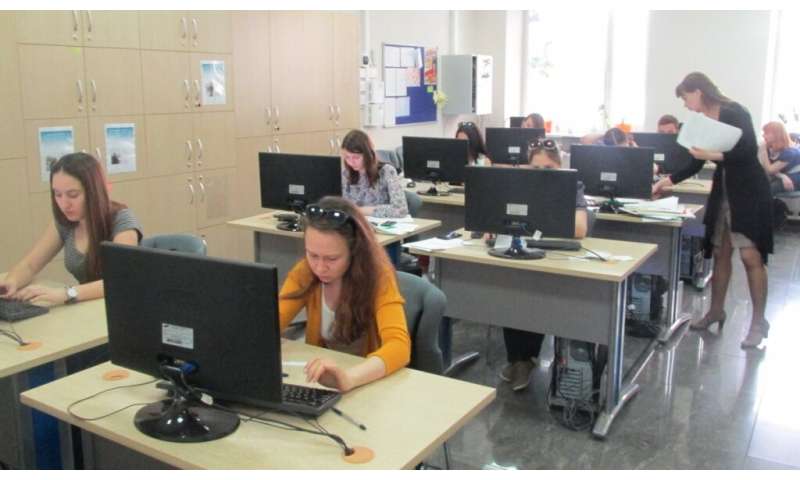Scientists: knowledge of Chinese language influences spatial abilities

A team at the International Center for Human Development Studies at TSU is studying how spatial abilities are formed. The scientists have found that there are differences between Chinese and Russian students. The results of the study are published in the article "The Factorial Structure of Spatial Abilities in Russian and Chinese Students".
Along with TSU representatives, the authors included the staff of the laboratory Cognitive and Interdisciplinary Research of the educational center Sirius (Sochi) and other scientists from Russia, China, and the UK.
Spatial abilities, in a broad sense, are understood by scientists as some cognitive process that allows a person to operate with visual information or navigate in space. Despite the huge amount of research on this topic, it remains unclear whether this cognitive process is ability or capabilities. Previous studies based on the project The Twins Early Development Study (TEDS) (United Kingdom) have shown that, most likely, spatial abilities are a manifestation of a single cognitive process. However, the structure of spatial abilities in different populations has not yet been studied.
- In research, cultural differences are always interesting—they help to understand why such differences exist and to explore the mechanisms of various cognitive processes. There are still many unexplored populations in this context. This project explored the differences between Chinese and Russian students, especially since we have very good partners in China, - explains Maxim Likhanov, a researcher at the Cognitive and Interdisciplinary Research Laboratory at the Sirius and TSU.
921 students from Russia and 229 students from China participated in the study. Tasks on 2-D and 3-D visualization, mental rotation of objects, spatial modeling, spatial connections of objects, orientation in space, and speed and flexibility in solving spatial problems were used.
The study showed that the structure of spatial abilities varied among participants from Russia and China. For Russian students, the results repeated previous studies: spatial abilities were most likely one process. However, data from the Chinese sample showed that spatial abilities divided into two parts: spatial and verbal.
- We think it is connected with verbal abilities, due to the special aspects of the Chinese language,- says Maxim Likhanov. - After all, writing a hieroglyph is a spatial task. You can collect it from dashes, you can make it from several hieroglyphs. The verbal factor here manifested itself in the task of determining the shape of a section and on mechanical thinking.
So, in the cross sectional task, students were given a drawing of a 3-D object, which was cut in one place. They needed to determine the shape of this section, transferred to a plane, and to some extent assemble complex details from simple ones. When performing another task on mechanical thinking, the participant had to present a system of gears, one of which is spinning in a given direction, and understand in which direction the second and third will rotate.
- This task about the gear system required reading the instructions, and the success of its implementation, in our opinion, was very much connected with verbal abilities,- adds Maxim Likhanov. - It is necessary to note that Chinese students showed better results in these two tasks and in the task of properly assembling a figure from parts according to the instructions. And Russian students showed the best results in spatial planning and tasks to determine prospects.
These differences are discussed in the context of cross-cultural features in educational programs in China and Russia, however, they require further large-scale studies using data on the level of intelligence, verbal abilities, and academic success of participants from different countries.
More information:
psychologyinrussia.com/volumes … dex.php?article=7574
Provided by Tomsk State University